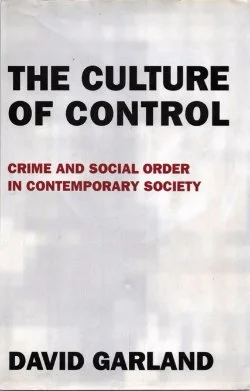The Culture Of Control: Crime And Social Order In Contemporary Society
By David Garland
From the cover: The past 30 years have seen vast changes in our attitudes toward crime. More and more of us live in gated communities; prison populations have skyrocketed; and issues such as racial profiling, community policing, and “zero- tolerance” policies dominate the headlines. How is it that our response to crime and our sense of criminal justice have come to be so dramatically reconfigured? David Garland charts the changes in crime and criminal justice in America and Britain over the past twenty-five years, showing how they have been shaped by two underlying social forces: the distinctive social organization of late modernity and the neoconservative politics that came to dominate the United States and the United Kingdom in the 1980s. Garland explains how the new policies of crime and punishment, welfare and security— and the changing class, race, and gender relations that underpin them—are linked to the fundamental problems of governing contemporary societies, as states, corporations, and private citizens grapple with a volatile economy and a culture that combines expanded personal freedom with relaxed social controls. It is the risky, unfixed character of modern life that underlies our accelerating concern with control and crime control in particular. It is not just crime that has changed; society has changed as well, and this transformation has reshaped criminological thought, public policy, and the cultural meaning of crime and criminals. David Garland’s The Culture of Control offers a brilliant guide to this process and its still-reverberating consequences..
Chicago. University of Chicago Press. 2001. 304p.


